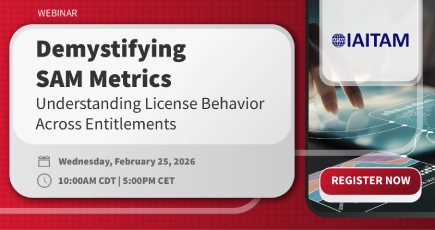Autodesk license denials present a major challenge for government agencies that rely on continuous access to design and engineering software for mission-critical tasks. When licenses become unavailable, projects can be delayed, operational efficiencies drop, and resources are mismanaged—especially when usage patterns vary across multiple departments.
Autodesk License Denials in Government
Autodesk is among the most widely used CAD and BIM solutions within the U.S. government, supporting agencies engaged in engineering, infrastructure, architecture, and design—including the military, NASA, and the Departments of Transportation and Energy.
When engineers experience license denials due to unavailability, project timelines and outcomes suffer. In defense agencies, these disruptions can delay critical infrastructure development, affecting operational readiness and strategic initiatives. Similarly, in civil infrastructure and transportation projects, access issues can slow design processes, impede approvals, and extend construction timelines—resulting in inefficiencies and cost overruns.
Beyond causing project delays, software access issues also diminish productivity and job satisfaction among federal engineers. Studies have shown that inconsistent or unavailable software increase stress and lower engagement, eroding organizational performance. Ensuring the seamless availability of Autodesk tools is vital for sustaining efficiency, meeting project deadlines, and optimizing resources in government engineering initiatives
Why License Denials Happen
Autodesk license denials in government agencies stem from multiple factors, including:
Insufficient License Availability
Government agencies often rely on complex, multi-departmental software usage. If Autodesk license allocations are not well-managed or monitored, demand can quickly surpass available licenses, resulting in access denials.
Poor License Tracking and Forecasting
Without real-time tracking and predictive analytics, accurately forecasting software usage needs is challenging. Because government projects often have fluctuating and unpredictable demands, license shortages can arise during peak usage times.
Ineffective License Pooling
Many software vendors rely on cascading or pooled license models in which licenses are drawn from multiple pools based on priority. When the primary pool is exhausted, users may be denied access—even if secondary pools have available licenses. Misconfigurations or poor management of these pools frequently lead to denials.
Complex Licensing Agreements
Government contracts often contain restrictive terms—such as limited license counts or specific usage scenarios—that complicate allocation and lead to denials when misunderstood or misapplied.
Lack of Automation
Many agencies still rely on manual software license management, which is prone to human error. In contrast, automated tools for license harvesting, reallocation, and monitoring significantly reduce denial incidents, but remain underutilized in some government settings.
Software Misuse or Underutilization
Software licenses can become locked by inactive users, preventing others from accessing them. Without effective monitoring and automated license reclamation policies, agencies struggle to efficiently reallocate unused licenses causing denials.
Ensure Autodesk License Availability with Open iT
Open iT supports advanced Autodesk license management through its LicenseAnalyzer tool, offering in-depth data collection, sophisticated usage analytics, and detailed reporting for both on-premises and cloud-based Autodesk licenses.
With LicenseAnalyzer for Autodesk, government agencies can leverage the following capabilities:
Real-Time Monitoring and Alerting
Open iT continuously monitors Autodesk license usage in real time, tracking consumption patterns across the organization. Customizable dashboards and alerts notify stakeholders when license utilization approaches maximum thresholds. This proactive system helps administrators act before potential denials disrupt workflows.
Accurate Differentiation of True vs. False Denials
Open iT clearly distinguishes genuine license denials from false ones. True denials occur when no licenses are available in any cascade sequence, indicating an actual scarcity. False denials happen when the initial attempt fails but the user secures a license through subsequent sequences, allowing for more precise license availability management.
Advanced Usage Analysis
LicenseAnalyzer provides in-depth metering of Autodesk application usage, enabling agencies to determine whether licenses are actively in use. This insight helps identify underutilized licenses, leading to more efficient allocations and improved overall availability.
Automated License Harvesting
Open iT maximizes license efficiency by applying customized policies based on system activity metrics like CPU usage, I/O, and keyboard or mouse interactions. Inactive licenses are automatically reclaimed, freeing them for other users and reducing waste.
License Usage Simulation
LicenseAnalyzer simulates future license demands by analyzing historical usage patterns. These forecasts help agencies evaluate whether transitioning to a different licensing model would better accommodate evolving requirements, ensuring adequate resources for future projects.
Partner with Open iT
As a GSA-certified software vendor, Open iT brings extensive experience helping federal agencies including NASA and the Jet Propulsion Laboratory —optimize software license management. Our advanced solutions provide comprehensive visibility, predictive analytics, and automation, ensuring seamless access to Autodesk tools, minimizing denials, and maximizing efficiency
Get in touch with Open iT today to learn how we can help your agency eliminate bottlenecks, enhance compliance, and fully optimize your Autodesk investments.






